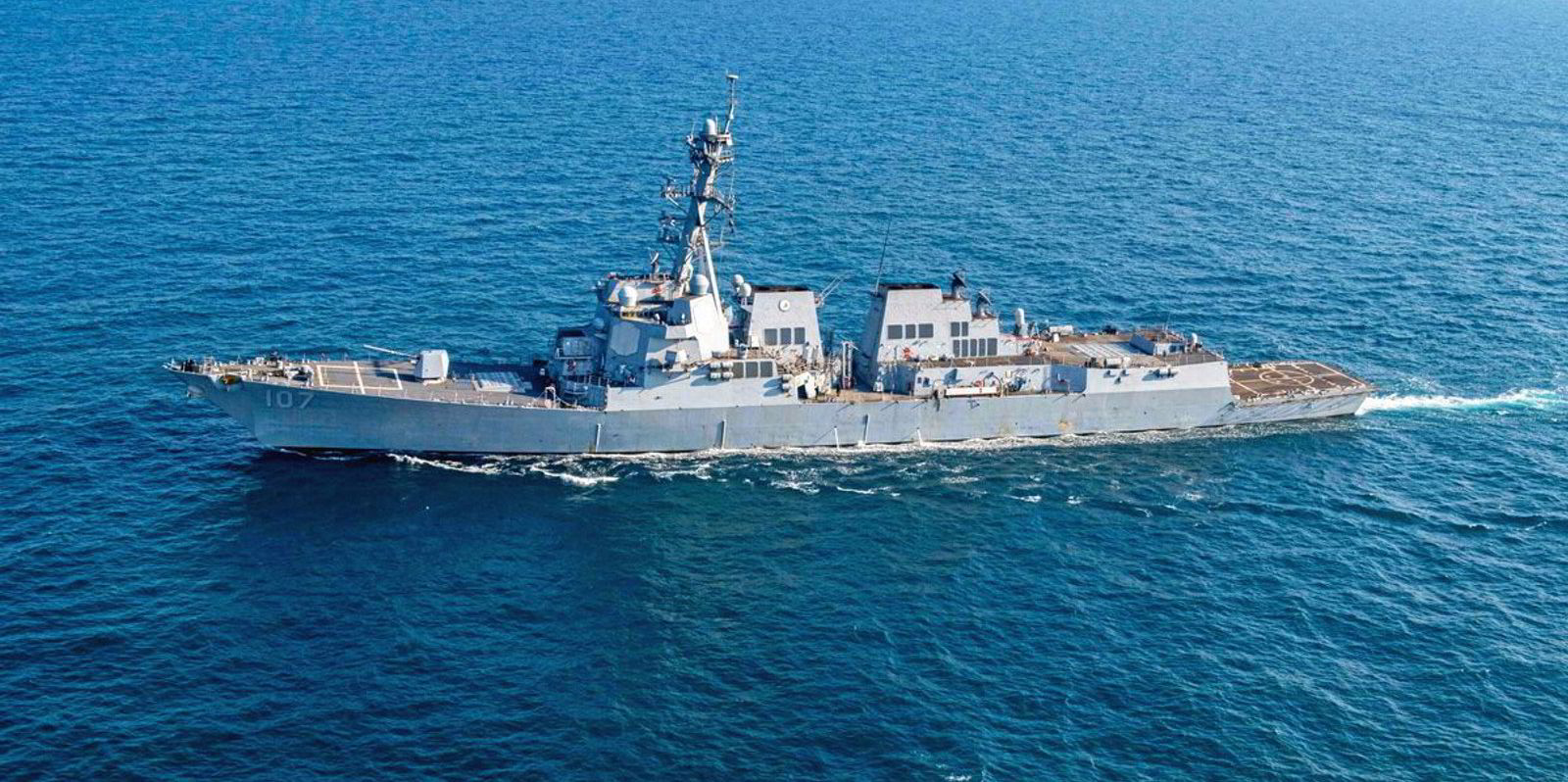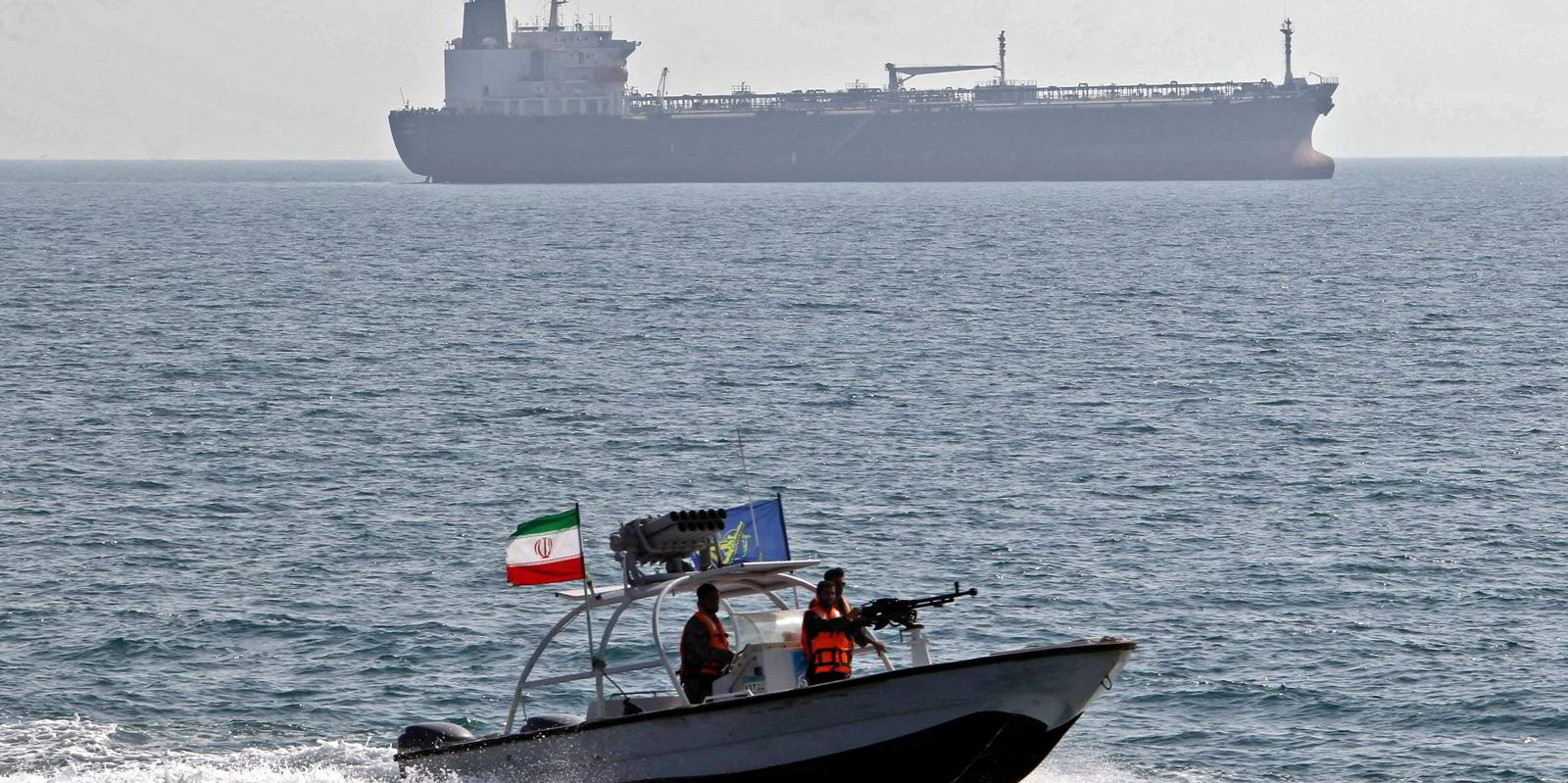The US and UK were reported to be preparing a strike against the Houthis in Yemen on Thursday, after the militant group defied warnings by firing another missile into Red Sea shipping lanes.
UK media sources reported that a British cabinet meeting was convened on Thursday to discuss the crisis, with the possibility of the country’s aircraft and Royal Navy ships participating in action with the US.
A UK Ministry of Defence press representative declined to comment for this story.
In Washington, a defence official said the US would not speculate on or forecast potential actions by the military.
“But US forces maintain the inherent [right] to self-defence and if we choose to take action, it will be at a time and a place of our choosing,” the official said.
The report of the meeting of Britain’s cabinet comes two days after US aircraft and warships and a Royal Navy destroyer shot down a barrage of missiles and kamikaze drones in the Red Sea.
That was followed by warnings from top officials from both countries that ramped up talk of “consequences” for further attacks by the Iranian-backed Houthis.
Despite that warning, the Houthis fired an anti-ship ballistic missile into international shipping lanes in the Gulf of Aden on Thursday, the US military said.
Bahrain-based US Central Command, which coordinates Washington’s military forces in the region, said on X that a commercial vessel reported seeing a missile hit the water. No injuries or damage were reported.
It was the 27th attack on international shipping since the Houthis first targeted the industry in November, Central Command said.
In Tuesday’s attack, US and UK forces intercepted 18 drones, two cruise missiles and a ballistic missile fired by the Houthis, formally known as Ansar Allah.
Ambrey Analytics said on Thursday that the attacks were directed at US and UK naval assets in the area, and there were no reports of merchant ships being threatened by name.

“It was likely not the first targeting of military assets but assessed to be the most severe,” the maritime security firm said.
“Further significant attacks on US naval assets are likely to trigger a military response aimed at the Houthis. Such a response is assessed to lead to a further escalation on the water and may lead to a broadening of the Houthis’ parameters for the targeting of merchant vessels.”
Ambrey said Houthis are still focused on targeting merchant ships with connections to Israel, although the attacks show an “ever-weakening” link to the country.
On Wednesday, Houthi spokesman Yahya Saree claimed responsibility, according to Ambrey Analytics. It said he explained that the group targeted an American ship in response to the killing of 10 Houthi operatives on 31 December.
“We have the ability — God almighty willing — to respond forcefully to any targeting of our country by America and its coalition. If any country involves itself with the Americans in targeting us, it will lose the security of its navigation, and its ships will be targets for us,” Saree said.
That same day, UK defence secretary Grant Shapps said Tuesday’s attacks proved that the Houthis were not listening to a group of countries that said there would be consequences for further targeting of shipping.
“We won’t allow this to continue. So watch this space,” he said on Wednesday, in comments read to hint at an impending counterstrike.
US secretary of state Antony Blinken similarly suggested that the calculus had changed following Tuesday’s cannonade of missiles and drones.
Asked by a reporter on Wednesday when the talk of consequences would turn into action, Blinken said he did not want to telegraph Washington’s plans.
“All I can tell you is, again, we’ve made clear, we’ve been clear with more than 20 other countries that if this continues as it did yesterday, there will be consequences. And I’m going to leave it at that,” he said.





